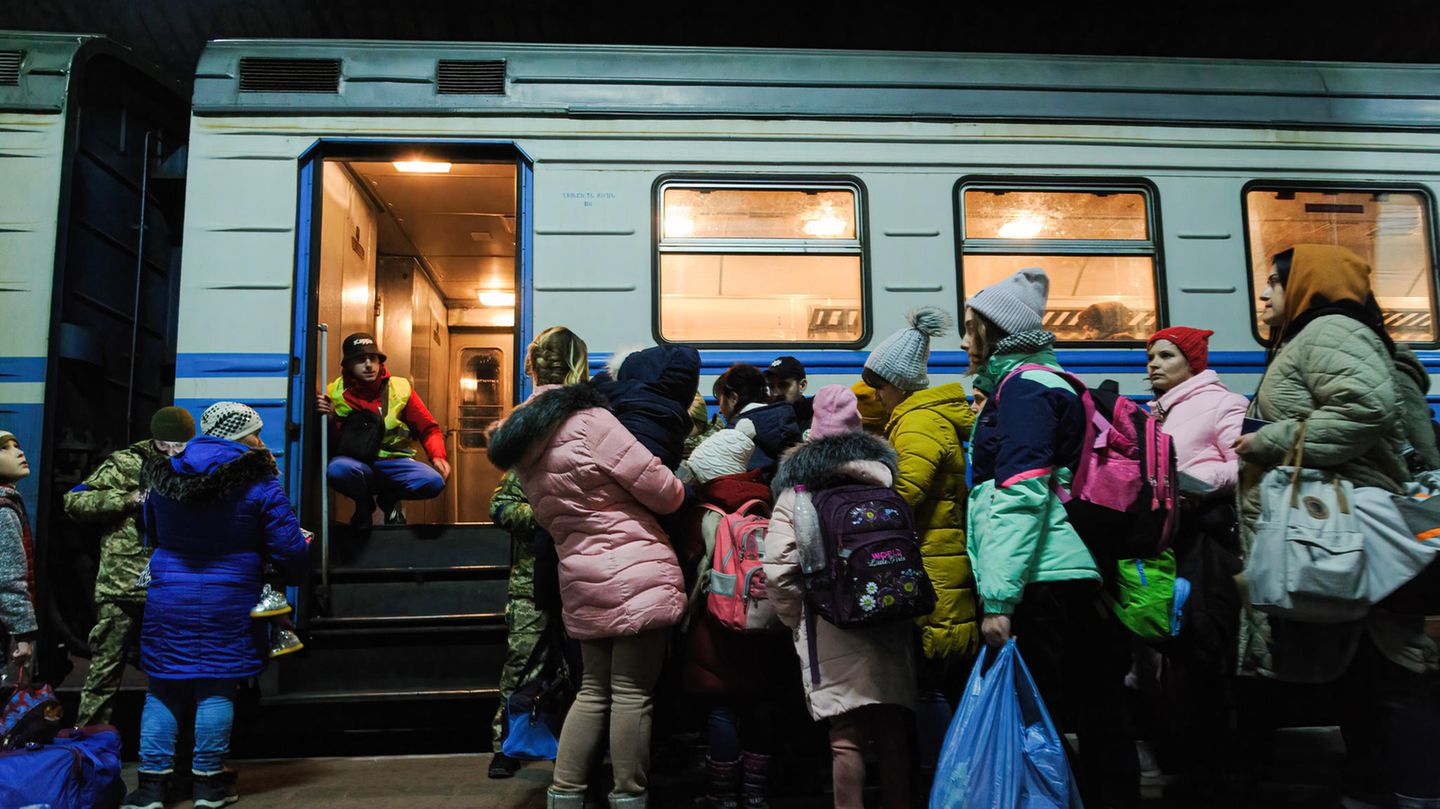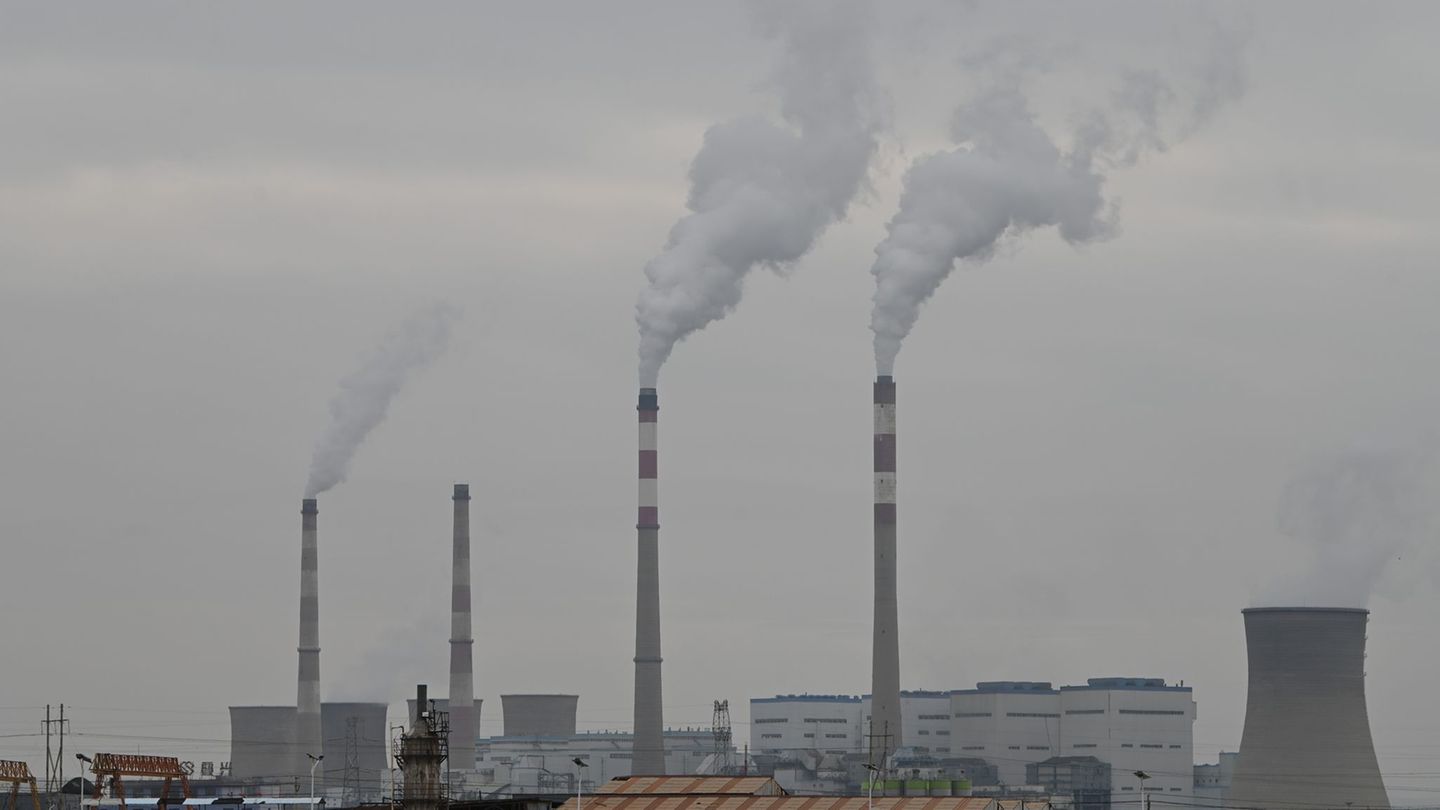Millions of people have fled Ukraine to the West to escape the war. But some seem to be overwhelmed by the new life; they are afraid that they will not be taken care of in the long term. Therefore, some return to the war country.
The train station in Lviv, western Ukraine, is full of people fleeing. They fight for places on the trains to Poland. There are only a few people standing on a desolate platform away from the main hall: refugees who are returning to Ukraine.
They were away for five days, Svitlana tells Natalucha, wiping the tears from her grandson’s face. From her house in the heavily bombed Kharkiv in the east, first to Lviv (Lemberg), from there to Poland. And now they are back in Ukraine. There are four of them: the 60-year-old grandmother, the 28-year-old daughter Galyna Kanuka and the two grandchildren.
Hundreds of people are going to Ukraine
Kanuka crouches between the luggage to protect himself against the freezing cold on the platform. They have been well received in Poland, she says. “The volunteers helped us a lot.” But they should have moved on and found help again. She was overwhelmed by the prospect of starting over in a foreign country with a foreign language. Especially since one of the children is sick and needs treatment. That is why the women decided to return to their homeland despite the war.
According to the United Nations, more than three million people have fled Ukraine since the Russian invasion began three weeks ago. No one knows how many turned back. At least three trains carrying 100 to 250 people left the Polish city of Przemysl for Lviv this week, reporters from the AFP news agency observed.
Among the passengers are foreign volunteers who want to fight for Ukraine and people transporting relief supplies. Most, however, are women and children with Ukrainian passports. “Return home, your homeland is waiting for you,” reads a handwritten sign at Lviv train station.
“They feel like they won’t be taken care of in the long run”
Oleksandr works as a train driver on the Przemysl-Lviv line. Sometimes up to 300 people are on the train back to Ukraine, he says. “In the beginning it wasn’t the case, but lately a lot of women are coming back with children.”
Although many countries, especially in the European Union, promise to take them in and help them, many displaced people are afraid of a new start abroad. “They have the feeling that they will not be taken care of in the long term,” said Oleksandr in the cab of the hissing railcar. “One woman said she had been homeless there for a few days and it was better to go back to Ukraine.”
The train station in Przemysl, Poland, is teeming with volunteers offering food, shelter and onward travel. The departure board does not show the trains back to Lviv. If you want to go to Ukraine, you have to go against the flow of arrivals through a door at passport control that says “No entrance”.
“We hope they will be safe in Lviv”
The sparsely occupied trains begin their 90-kilometer journey just a short distance from the road where the refugees’ cars are jammed. On the Polish side, helicopters fly over the border area. Once you have passed the rusty barbed wire fence at the border, you can see the checkpoints marked with Ukrainian flags from the train.
In Lviv, although far from the front lines, the windows are blocked with sandbags and sirens warn of air raids throughout the night. A nearby military base was hit on Sunday, killing about 35 people.
Svitlana Natalucha and her family still want to stay in the city. “We wanted the children in Poland to be safe, but we didn’t make it,” she says. “We hope that they will be safe in Lviv.”
Source: Stern
David William is a talented author who has made a name for himself in the world of writing. He is a professional author who writes on a wide range of topics, from general interest to opinion news. David is currently working as a writer at 24 hours worlds where he brings his unique perspective and in-depth research to his articles, making them both informative and engaging.




